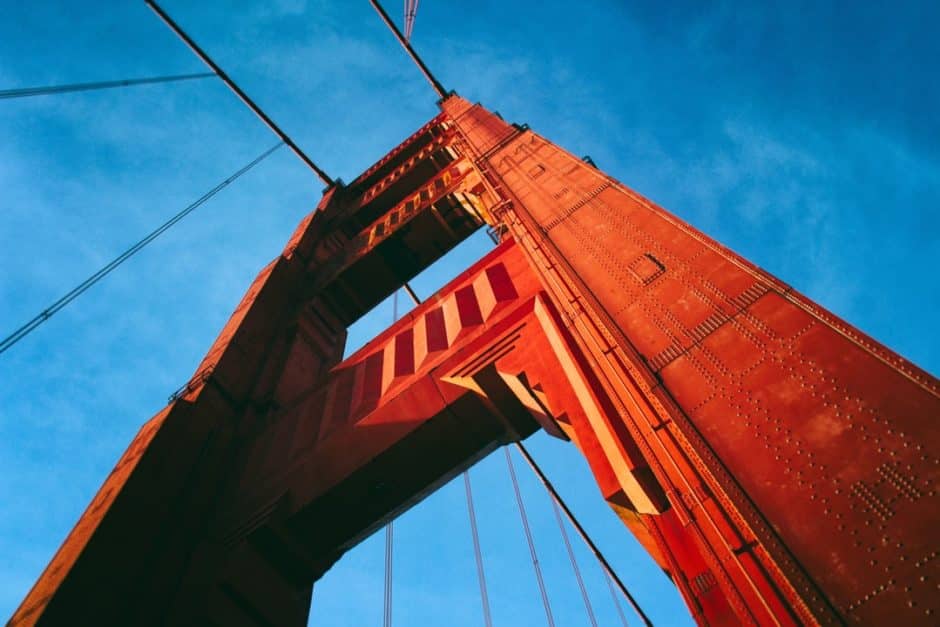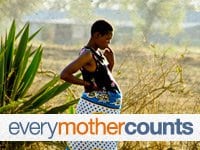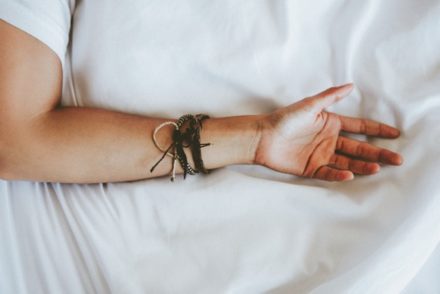My flight landed in San Francisco on Halloween night. I had $300 in my pocket. I was alone. It was a warm evening, and I paid $12 for the shuttle to take me to my destination. I spoke to no one. Outside the van window I saw fat nuns in silver boots, pink-haired girls on roller skates, a pair of vampires with blood dripping down their jaws and a 200-pound Rainbow Brite in a tutu. Everything sparkled and I wondered about the future.
I was 25 and alone. I had left Montreal that morning because I had to. I was run out of town by my own bad habits. I drank too much, I slept with too many people, I let my untreated depression get the best of me. The streets of the city seemed haunted now, every place I went held memories of bad behavior or an unbearable sadness. I left because it was the place where my boyfriend had been diagnosed with schizophrenia, had locked me in the apartment while he talked to a dead telephone, and threatened to throw my off the balcony if I tried to leave. I left because the last apartment where I had lived was too dark and too quiet. It gave me nightmares to live alone. Besides, in Montreal it was cold all the time.
I was raised to believe that to be a grown up was to leave where you had come from without looking back. You did it out of necessity. Leaving your home was like growing three inches over summer vacation when you were a teenager, painful and completely out of your control. After high school graduation I’d gone to Ireland with my best friend, hoping to connect with my roots. I though maybe I’d move there. But it wasn’t like I’d imagined. My grandmother didn’t answer her phone, my aunt was welcoming but harried, overwhelmed by the demands of her two young children. The guidebook told us to visit the Aran Islands, and we obliged. One night two drunk men we’d ignored in the pub that evening climbed through the window of the isolated hostel where we were staying, hunting for us in our beds. I left the country the next day and returned to Ottawa, the city I called home. It wasn’t really home though. My parents had moved five hours away two weeks after graduation.
I left again a month later, this time with the boyfriend who would eventually be claimed by the demon of schizophrenia. We hitchhiked our way through 3,000 miles of Canadian landscape, the endless roads of Ontario, the stench of pulp mills in Manitoba, the flat carpet of plains in Saskatchewan dusted with snow and covered with a canopy of clouds that promised more, even though it was only the second week of October. We got stranded in Kamloops and took a bus from there, arriving in Vancouver late at night. We stayed a year. I left Vancouver to go to university in Montreal, arriving with nothing but a backpack. I stayed there for four years, until that morning when I moved to San Francisco.
The shuttle climbed the vertical hills, turned corners through the winding streets, dropping other passengers at clean, well-lighted hotels where they would meet friends or have a drink at the bar or go dancing with the drag queens in the Castro. Mine was the last stop, a darkened hostel in Fisherman’s Wharf, a former army barracks reconstituted into a temporary resting place for people with gypsy in their blood; a cold, long building with a bank of windows standing sentinel, concrete floors, a basement full of dormitory rooms and a wide, gaping kitchen. I’d made my reservation weeks before. I thought I’d already paid for my bed, but the card had not been charged and I had to dig into my meager savings to pay for it before I could have the key. This threatened to unhinge me but I held steady at least for that night. I roomed with two Macadeonians, a German and a pair of Koreans. I didn’t go to a Halloween party. I curled up on my bottom bunk and went to sleep.
In the morning, I approached the green slope in front of the hostel as if it was a cathedral. I stood there for at least half an hour, unmoving, gazing at the city before me, transfixed by the way the light poured out onto the grass and the white stone wall that surrounded the compound. I saw the Golden Gate bridge and the Coit tower and the triangular skyscraper jutting up from the skyline. I felt something break and shift inside me. I was embarking on a new self. There was something different about me this morning. I was alone. I was an artist. I was free. The air smelled like something holy. The early morning light that embraced the city made me feel like singing. I had my journal. I had my camera. I held no ambition other than to collect experiences and to feed my soul.
*
Ten years later, my son was born 12 weeks early in a hospital room in North Carolina, weighing less than three pounds. He spent nine weeks in an isolette in the stark world of the neonatal intensive care unit at Duke University Hospital, attended to by latex-gloved women in green uniforms who smelled like hospital soap and who talked about television and their husbands and the weather and their kids. They handled my son’s tiny red body with their ice-cold hands, they untangled the cords that tethered him to three machines. They put caffeine and diuretics and vitamins into his IV. They changed his doll-sized diaper and they covered his eyes with a blindfold when they shone a blue light on his jaundice-ridden body. After nine weeks we took him home.
It was not how I imagined I would become a mother, but then again, none of this life is what I had imagined. After San Francisco, I moved to Seattle, then went to graduate school in Iowa. I fell in love with a woman there, and we moved to North Carolina so she could go to law school. I got pregnant using donor sperm ordered from California. We are an interracial family – I am white, she is African American, our son is mixed. We live in a small green wooden house with a porch swing and a shaded front yard in a lush, tree-filled neighborhood in North Carolina. I am home here, I think. In North Carolina, I am finally home.
In the summer, mulberries fall sloppily onto our car and we wash the mess off as if it’s bird shit, not fruit. In the fall, pecans bang like vicious hailstones on our roof. Sometimes we gather them and crack them open to eat the nutmeats nestled inside, but mostly they lie on the ground, an offering to the squirrels and opossums and mice and raccoons that patrol the yards here at night. There are persimmon trees in the park, and showy azaleas up and down the block, and magnolias and dogwoods and hydrangeas and tall skinny Carolina pines. Palmetto bugs the size of a bar of chocolate walk lackadaisically through the living room whenever they feel like it.
A pastor and his wife and their three children live across the street. An artist and his dog live next door. An anarchist bakery is housed in a leaning duplex on the corner, and at the end of the street lives a man named Julian who was shot when he was working as a photographer in El Salvador. He still has an angry scar on his arm. We all say hello to each other in the morning. We watch each other’s children, ask each other for favors, we feel a sense of community.
My small, unconventional family is knit into the fabric of this neighborhood and into the fabric of this country. None of us are from this place. We have all come from somewhere else. Julian is from England, Brima is from Sierra Leone, little Benjamin is from Vietnam. Fiona came here from Vancouver, and Susan is from New York. But this is where we belong.
*
For so many years, I didn’t know where I belonged. Although I grew up in Canada, my people are not really Canadian. My mother was born and raised in Florida and that landscape is permanently imprinted on her subconscious: Spanish moss draped over the trees, squat palms lining the beach, the tang of warm salty water on your lips, sumptuous afternoon thunderstorms. When she was a child, she and her sisters would tiptoe around the yard in bare feet, toes digging into muddy ground. Inevitably, someone would get stuck by a burr or cut by sawgrass, or have a lizard scamper across their bare skin or stomp on a squishy, rotten grapefruit nested in a swirl of leaves.
My father was born to a butcher’s daughter in Cork, Ireland. There was no central heating in his house, and he never walked around barefoot. He was named for his father, and his mother loved him the most of all her children. His father died when he was only 12, and he was sent to boarding school on the south coast of Ireland. In 1968, he got a job in a Jewish vegetarian resort in the Catskill mountains in New York where he waited tables. That summer he ate food that he didn’t even know existed. He was warm. He met my mother who was quiet, dreamy and pure. She laughed at his jokes.
The next summer they got married in the Seminole Heights Methodist church in Tampa, Florida. My mother’s family thought she was reckless. My father’s family sent telegrams with messages of congratulations. In the photographs, my mother looks radiant and surprised. My father is gorgeous, deep dimples, dark brown wavy hair, crooked smile.
*
Between 1900 and 1968, a million Irish people left their homeland and came to America. In Ireland you can feel the history that oozes from the castle walls. The battles of two hundred years ago are felt so strongly that you can see the ghosts. A person can leave there but the place travels with them, even through their grandchildren. But America gets down on its knees and begs you to forget the past.
Everything you need is here. The Joshua Tree desert where I once slept underneath the moon. The long straight highways in Southern California, the humid green air of the South, the fecund cornfields in Iowa, the sparse unpopulated swaths of land in Wyoming, the heartrending loneliness of South Dakota. And the crows that patrol our neighborhood, the cardinals that hop across the dirt covered front yard, the turkey vultures that circle the forest around us.
Jill Moffett is a writer, editor and mother who lives in Durham NC. She works as a freelance medical writer and editor for a variety of public health organizations, and writes essays and short stories in her spare time. You can find out more about her at www.jillmoffett.com.









1 Comment
What a beautiful intriguing story. I loved it.